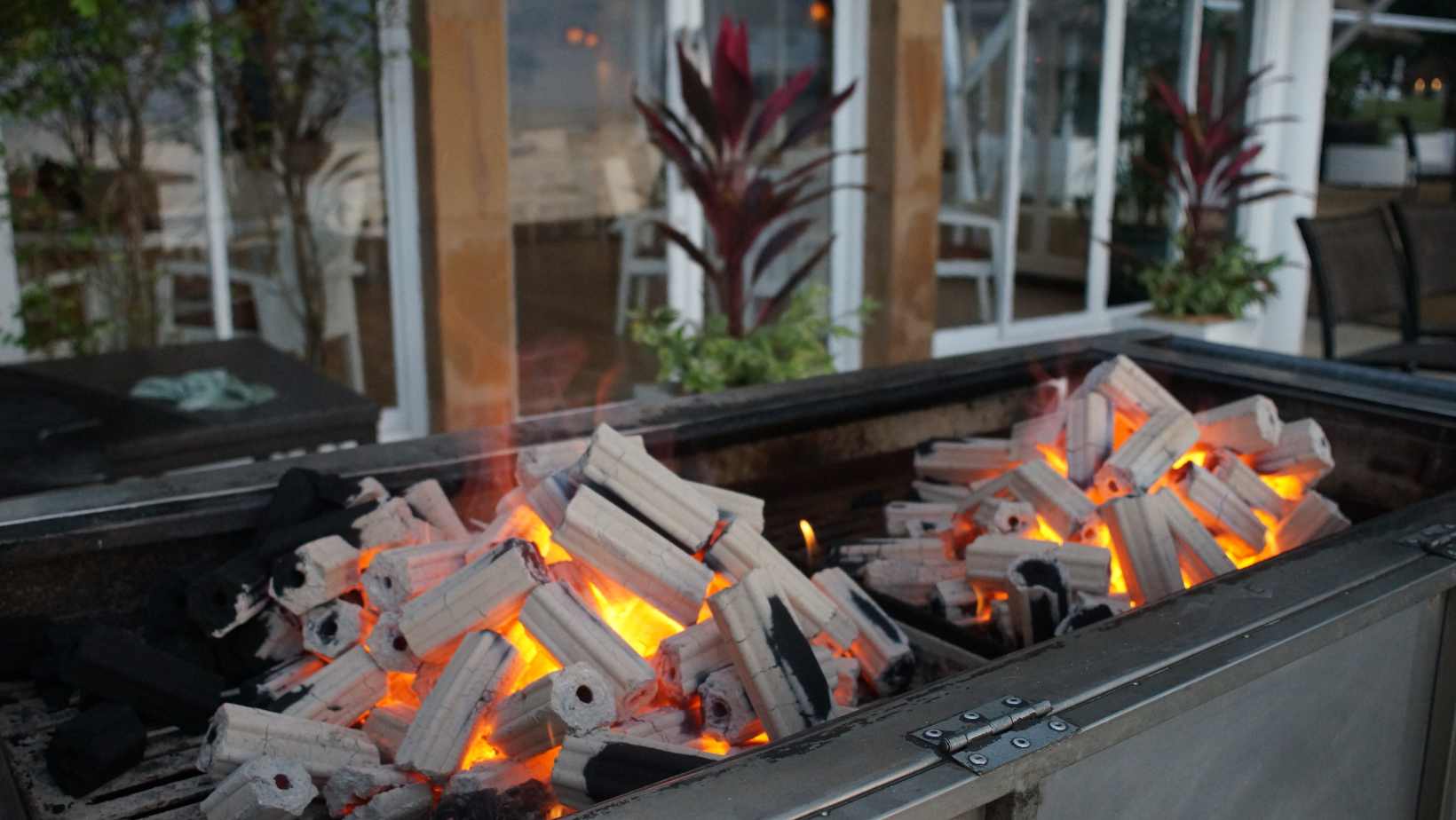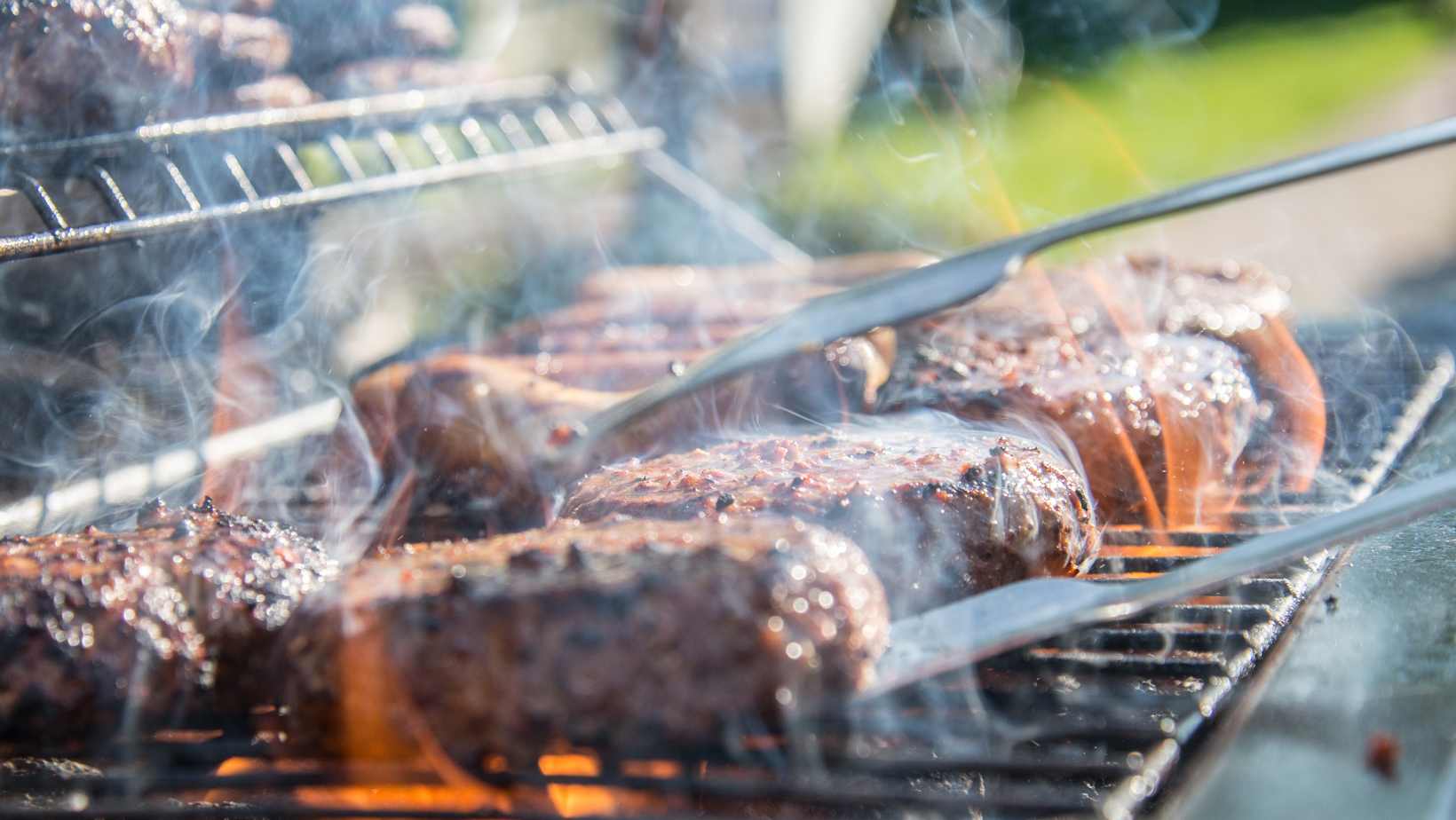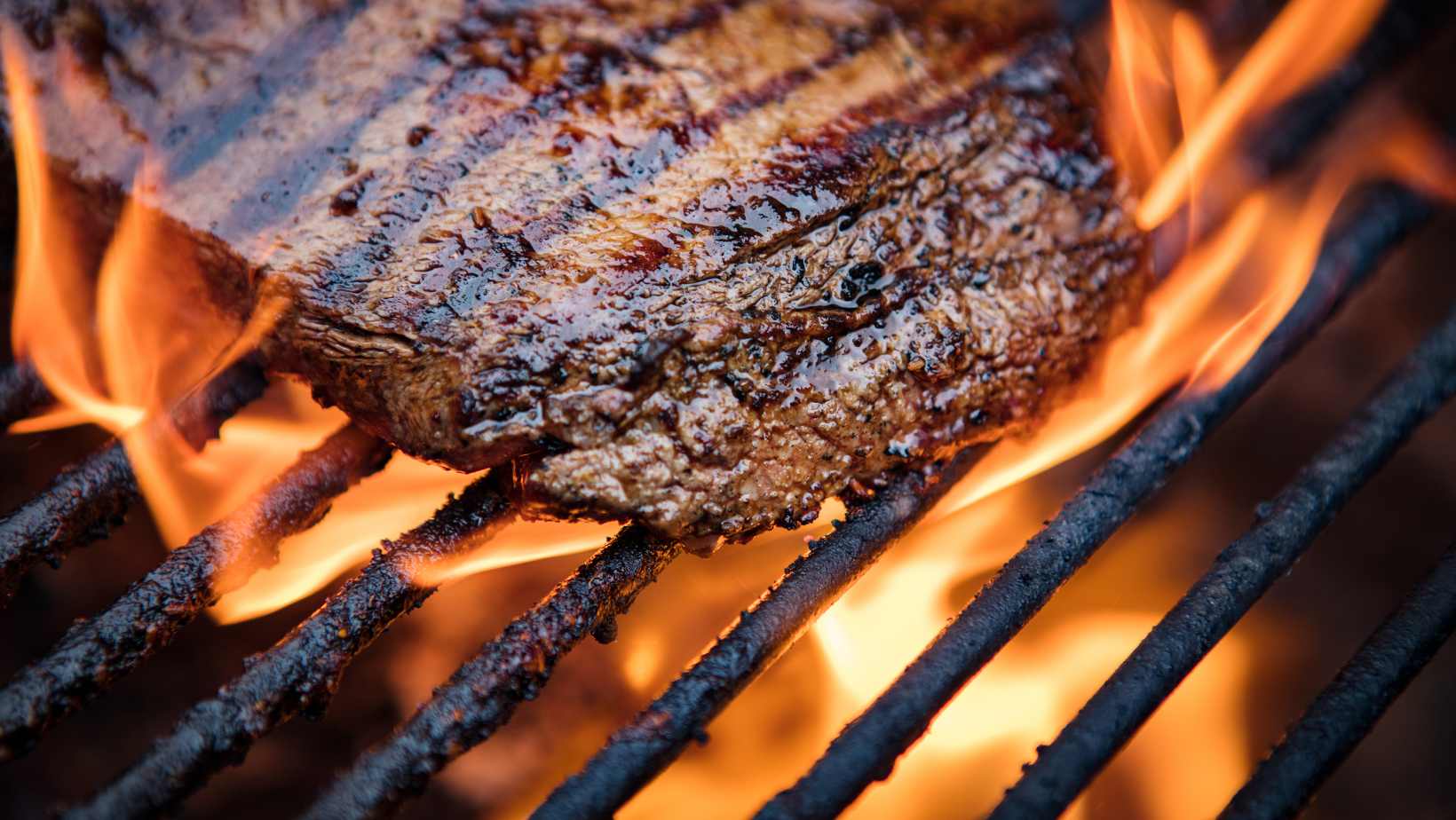
Pellet Grill vs Charcoal
When choosing between a pellet grill and a charcoal grill, there are several factors to consider. These grilling methods are popular with food enthusiasts and purists alike, but they offer different benefits and drawbacks that may suit different individuals depending on their preferences and cooking needs.
For starters, a pellet grill is an electric-powered option that uses wood pellets as its primary fuel source. An auger feeds These pellets into the grill’s firebox, and the grill’s computerized system controls the combustion rate. On the other hand, charcoal grills require manual lighting and charcoal briquettes or lump charcoal to generate heat and smoke.
One of the biggest benefits of a pellet grill is its ease of use and consistency. Because the computerized system regulates the grill’s temperature, there’s little risk of burning or overcooking your food. Pellet grills offer various cooking options, including grilling, smoking, and baking. However, some say pellet grills lack the traditional smoky flavor of cooking with charcoal. Charcoal grills can be a bit trickier, but they offer that classic smokiness and depth of flavor that many grill enthusiasts crave.
Pellet Grills: Advantages And Disadvantages
Two of the most popular options for grilling are pellet grills and charcoal grills. Pellet grills are a newer type of grill that have become increasingly popular recently, while charcoal grills have been a mainstay for decades. In this section, we’ll look at the advantages and disadvantages of pellet grills.
Advantages
Ease of use: One of the biggest advantages of pellet grills is their ease of use. Unlike charcoal grills, which require you to manually light the charcoal and regulate the temperature, pellet grills use an automated system that feeds pellets into the grill and regulates the temperature for you. This makes pellet grills much easier to use, especially for beginners.
Versatility: Pellet grills are also very versatile. You can use them to grill, smoke, bake, and even roast, giving you a wide range of cooking options. This versatility makes pellet grills a great option for anyone who likes experimenting with different recipes and cooking styles.
Consistency: Because pellet grills regulate the temperature automatically, they can maintain a consistent temperature throughout cooking. This means your food is cooked evenly and always comes out perfectly. With charcoal grills, it can be difficult to maintain a consistent temperature, which can result in unevenly cooked food.
Convenience: Pellet grills are also very convenient. Since they don’t require you to manually regulate the temperature, you can set it and forget about it, allowing you to focus on other tasks while your food cooks. Many pellet grills also come with features like WiFi connectivity, allowing you to monitor and control the grill from your smartphone.
Disadvantages
Cost: One of the biggest disadvantages of pellet grills is their cost. Pellet grills can be quite expensive, especially when compared to charcoal grills. While more affordable options are available, you can expect to pay several hundred dollars or more for a high-quality pellet grill.
Maintenance: Pellet grills also require more maintenance than charcoal grills. For example, the automated system that feeds pellets into the grill can be prone to malfunctions, and the grill itself needs to be cleaned regularly to prevent grease and other debris buildup.
Availability of pellets: pellets can be harder to find than charcoal. While charcoal is available at most grocery and home improvement stores, you may need to visit specialty stores or order pellets online to find the right type for your grill.
Overall, pellet grills offer many advantages over charcoal grills, including ease of use, versatility, consistency, and convenience. However, they do come with some disadvantages, including cost, maintenance, and availability of pellets. Ultimately, the decision between pellet grills vs charcoal comes down to personal preference and cooking style.
Charcoal Grills: Pros and Cons
When it comes to grilling, charcoal grills are a classic choice. However, they come with a variety of advantages and disadvantages when compared to their newer pellet grill counterparts. In this section, we’ll take a closer look at the pros and cons of charcoal grills.
Pros
Flavor: Many grill enthusiasts swear by the unique, smoky flavor that charcoal imparts on food. Food cooked over charcoal can have a distinct, rustic flavor that is difficult to replicate with other grills.
Temperature Control: Although charcoal grills can be slightly more difficult to control than gas or pellet grills, they are still quite adjustable. By adjusting the amount of charcoal used and the venting system, grill masters can achieve the perfect temperature for any kind of meat or vegetable.
Price: Charcoal grills are often more affordable than their pellet grill counterparts. They come in various sizes and styles, so there is a charcoal grill to fit almost any budget.
Cons
Messy: Using charcoal can be messy, particularly regarding cleanup. Ash and charcoal debris can be difficult to dispose of and can make a real mess of your outdoor areas.
Time-Consuming: Charcoal grills require more time and attention than other grills. Building and maintaining a fire takes skill and patience, which can be a turn-off for some would-be grillers.
Inconsistency: Controlling the temperature on a charcoal grill can be tricky. Weather changes, the type of charcoal used, and other factors can all impact the temperature and cooking time of food on a charcoal grill.
In short, charcoal grills have a distinctive flavor and are often more affordable than others. However, they require more time, attention, and cleanup compared to pellet grills and may be less consistent in temperature and cooking time. When deciding between a pellet grill vs. charcoal grill, consider these pros and cons and decide which type of grill is right for you and your family.
When choosing between a pellet grill and a charcoal grill, there are several factors to consider. Both have pros and cons, so it’s important to weigh them carefully before deciding. Below are some key points to help guide you in your decision-making process.
1. Flavor:
One of the biggest differences between a pellet grill and a charcoal grill is the flavor they impart on food. Charcoal grills are often lauded for their smoky, robust flavor, while pellet grills offer a more subtle, wood-fired taste. If you’re looking for that classic, smoky flavor, then charcoal is likely the way to go. However, a pellet grill might be a better option if you prefer a gentler, more nuanced taste.
2. Convenience:
Another major factor to consider is convenience. Pellet grills are generally easier to use than charcoal grills, as they don’t require the same level of attention and maintenance. With a pellet grill, you simply load the hopper with pellets, set the temperature, and let the grill do the rest. Charcoal grills, on the other hand, require you to adjust the temperature manually by adding or removing charcoal, which can be time-consuming and require more effort.
3. Cost:
Cost is also a consideration when choosing between a pellet grill and a charcoal grill. While pellet grills are typically more expensive upfront, they can save you money in the long run by using less fuel and producing less waste. Charcoal grills require constant charcoal, which can add up over time, whereas pellets are typically less expensive and more efficient.
4. Versatility:
Finally, it’s worth considering the versatility of each type of grill. Pellet grills are great for smoking and slow cooking, but may not be as effective for high-heat searing. Charcoal grills, on the other hand, can achieve higher temperatures and are better suited to direct-heat grilling. If you plan to use your grill for various cooking methods, a charcoal grill might be the more versatile option.
Ultimately, the choice between a pellet grill and a charcoal grill largely comes down to personal preference and what you value most in a grill. Consider your needs and weigh the factors above to make an informed decision that suits your lifestyle and cooking style.


